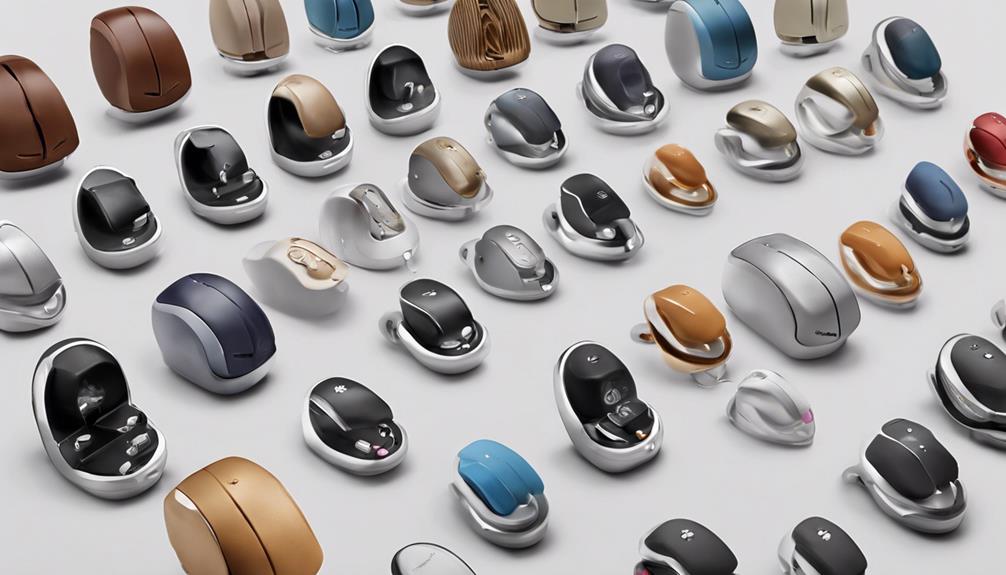The data shows that choosing between insurance and cash pay affects both costs and satisfaction. Insurance often negotiates lower provider prices and offers security for unexpected expenses but can involve administrative hassles and surprise bills. Cash payments provide transparency, more control, and easier negotiations—but may be costly upfront without coverage for major events. Your best choice depends on your health needs and preferences. If you’re curious, there’s more insight to uncover on how each option impacts your healthcare experience.
Key Takeaways
- Insurance often negotiates lower provider prices, but out-of-pocket costs can still be high due to copays and deductibles.
- Cash payments may be more transparent and flexible, allowing direct negotiations with providers for discounts.
- Patients satisfied with simplicity and control often prefer cash, while those valuing comprehensive coverage opt for insurance.
- Insurance is beneficial for unpredictable or costly medical needs, whereas cash is ideal for routine, predictable services.
- Overall, the data shows costs and satisfaction depend on individual healthcare needs and financial priorities.

Have you ever wondered whether paying with insurance or cash makes a difference in your healthcare costs? When comparing these two payment methods, a detailed cost analysis can reveal surprising insights. Insurance often negotiates lower prices with providers, which might sound like a clear advantage. However, some studies show that insured patients sometimes end up paying more out of pocket because of copays, deductibles, and coverage limits. On the other hand, paying with cash typically means you’ll see the full sticker price, but you can sometimes negotiate directly with providers for discounts. This flexibility can make cash payments more affordable in certain situations, especially if you’re paying upfront and avoiding the complexities of insurance billing.
Beyond just costs, patient satisfaction plays a significant role in the overall healthcare experience. Many patients report feeling more satisfied when they pay with cash because they avoid the often frustrating insurance paperwork and claim processes. Cash payments can streamline visits, making the experience quicker and more straightforward. You might appreciate the transparency of knowing exactly what you’re paying without surprise bills later. Conversely, insurance can sometimes create a perception of less control, especially if you encounter denied claims or unexpected costs not covered by your plan. This lack of clarity can diminish satisfaction, even if the overall expense is lower when considering negotiated rates.
A detailed cost analysis suggests that the choice between insurance and cash isn’t always clear-cut. For routine or predictable services, paying cash might be advantageous because you can negotiate a fair price upfront, potentially saving money. But for complex procedures or emergencies, insurance can provide a safety net, preventing catastrophic expenses. Keep in mind that insurance can also influence your satisfaction differently; some patients feel more secure knowing they have coverage, even if it involves more paperwork and occasional disputes. Others prefer the simplicity and transparency of paying cash, especially if they’re health-conscious or have high deductibles they plan to meet.
Additionally, understanding industry trends can help you make more informed decisions about healthcare payments and how they impact both costs and satisfaction. Ultimately, your decision hinges on your personal health needs, financial situation, and preferences. A careful cost analysis tailored to your circumstances can help you weigh the benefits and drawbacks of each approach. If you value streamlined service and transparency, cash might be appealing. If you want comprehensive coverage and peace of mind against unexpected costs, insurance could serve you better. Regardless of your choice, understanding how each method impacts costs and patient satisfaction can empower you to make smarter healthcare decisions.
Frequently Asked Questions
How Do Patient Outcomes Differ Between Insurance and Cash Pay?
Patient outcomes vary depending on whether they have insurance or pay cash. With insurance, you often experience higher patient satisfaction because of reduced costs and easier access to care. Treatment adherence tends to improve, leading to better health results. When paying cash, you might face barriers to follow-up care, which can negatively impact outcomes. Overall, insurance generally supports better treatment adherence and satisfaction, influencing your long-term health positively.
What Are the Long-Term Financial Impacts of Each Payment Method?
Think of your finances as a garden—you want it to thrive long-term. When you compare insurance and cash pay, insurance often offers more predictable cost savings, helping with financial planning. However, cash pay might seem cheaper upfront but can lead to higher costs over time if unexpected health issues arise. Consider how each method impacts your financial stability and plan wisely for the future.
Which Demographic Groups Prefer Insurance Over Cash Pay?
You might notice that demographic preferences influence payment trends markedly. Younger adults often prefer cash pay for its simplicity and transparency, while older populations tend to favor insurance for extensive coverage. Income levels also play a role; higher-income groups often choose insurance to manage potential costs. These demographic trends shape overall payment trends, highlighting how age, income, and health needs guide individuals’ choices between insurance and cash pay options.
How Do Provider Reimbursements Vary Between Insurance and Cash Pay?
You’ll find that reimbursement rates differ markedly between insurance and cash pay. Insurance companies often have negotiated rates, which can be lower but more predictable, whereas cash pay typically offers higher reimbursement rates, directly reflecting the service’s value. Billing procedures also vary; insurance claims require detailed documentation and follow-up, while cash pay simplifies billing, enabling quicker payments. Understanding these differences helps you optimize revenue streams and streamline your practice’s financial processes.
Are There Legal or Regulatory Differences Affecting Each Payment Type?
You might think money is money, but legal frameworks and regulatory compliance make all the difference. When you accept insurance, you navigate complex regulations that protect patient data and require specific billing standards. Cash pay seems simpler, yet you’re still bound by laws around fair billing and consumer protection. So, whether you’re handling insurance or cash, you must stay compliant with legal and regulatory nuances—irony’s in the details, after all.
Conclusion
So, next time you’re faced with a choice, remember—paying cash could save you more than just money; it might unlock a secret world of unbeatable deals and hidden discounts that insurance simply can’t match. Don’t settle for the status quo—embrace the power of cash and take control of your financial destiny. After all, in this game of healthcare, cash isn’t just king—it’s the entire kingdom waiting to be conquered.









